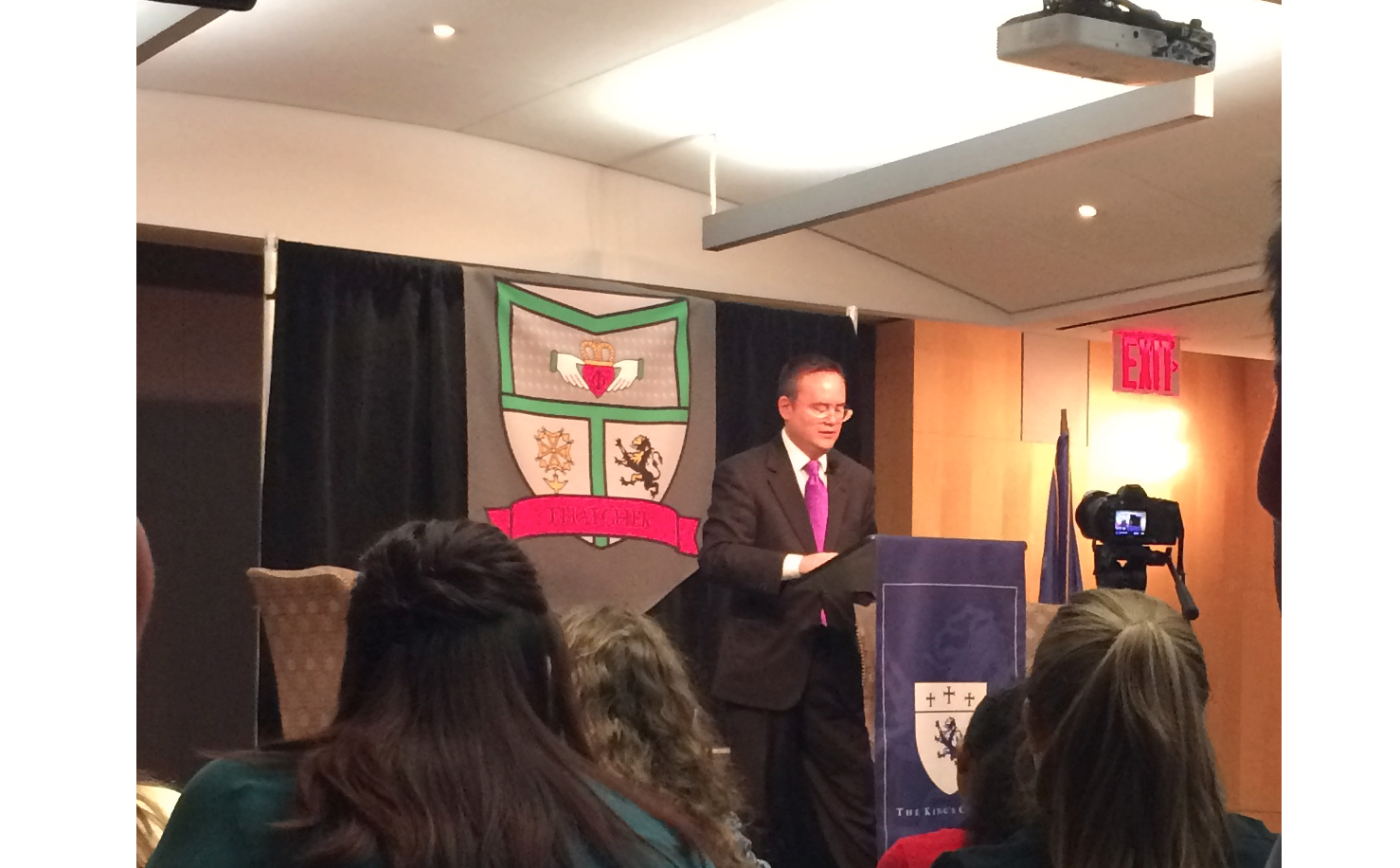Lessons in Leadership: Nile Gardiner, on Working for Thatcher
Margaret Thatcher serves as a King's House namesake, primarily due to her leadership as Great Britain's Prime Minister, when she fought for British sovereignty from the European Union and for strong relations between the United States and Great Britain. Nile Gardiner, a former aid to Margaret Thatcher, believes she had all the necessary qualities for a leader in a time of crisis. Last week, Gardiner, current Director of the Margaret Thatcher Center for Freedom, spoke to a Kingsian audience about the ways in which former Prime Minister Margaret Thatcher led Great Britain: with kindness, conviction, and a clear set of principles.
“She genuinely believed in everything she did and said. She was someone who was a selfless individual who dedicated her life to advancing the cause of the free world,” Gardiner said.
In her strong ideological convictions Thatcher found the strength to resist popular opinion and instead did what she thought was right. She did not need focus groups to understand what people thought; she believed that with the right ideas, people will naturally follow.
Thatcher was an avid reader and a “conviction politician.”
"[She was] the most decisive political leader in our time,” noted Gardiner.
According to Gardiner it was Thatcher’s enthusiasm for reading that lead her to becoming a gifted communicator.
"She had an incredible ability to convey complex ideas in simple ways. She was mesmerizing and could take over a room of thousands of people,” Gardiner recalled.
When Thatcher inherited the country, Great Britain’s failing economy made it the “sick man of Europe.” However, Thatcher’s reforms helped raise the economy from its “deathbed” and revive the hope of the people.
The mark of a great leader, Gardiner noted, is someone who lives not for himself, but for the greater good. Thatcher held a clear sense of calling to live for a higher purpose, and walked each day with a sense of destiny. Thatcher maintained a clear set of principles that drove her. These principles spurred on confidence — "moral courage" as Gardiner put it — which leads to liberty.
Gardiner also added that Thatcher firmly believed that the United States should lead on the world stage — fighting tyranny and advancing freedom. Just as the Iron Lady filled her country with a sense of renewal, optimism, and undeniable presence, America needs a generation of young leaders willing to do the same. Americans must pursue truth and now more than ever, place country above party as Thatcher graciously did.
After the lecture, Dr. Joseph Loconte joined Gardiner for a Q&A panel.

